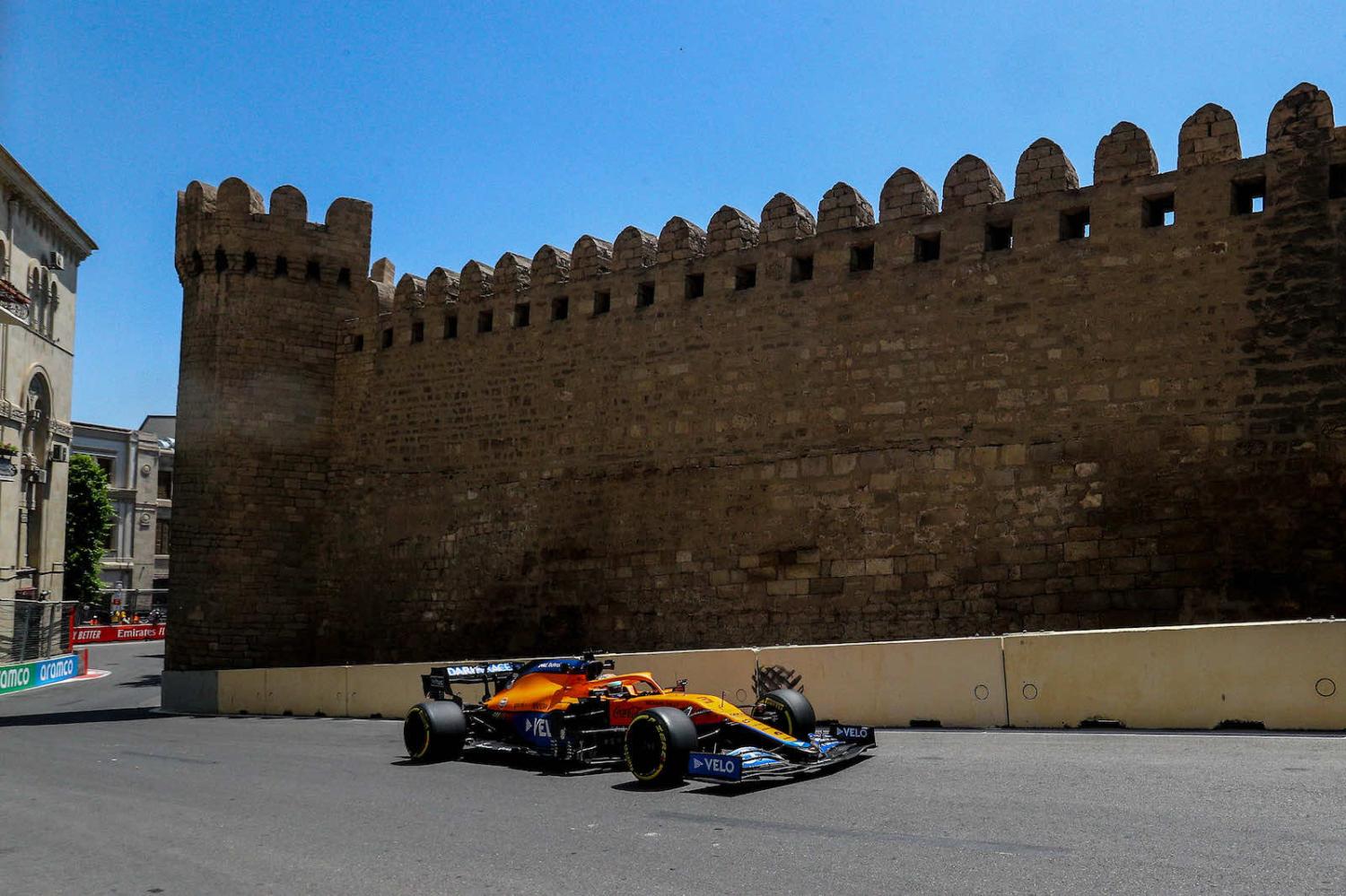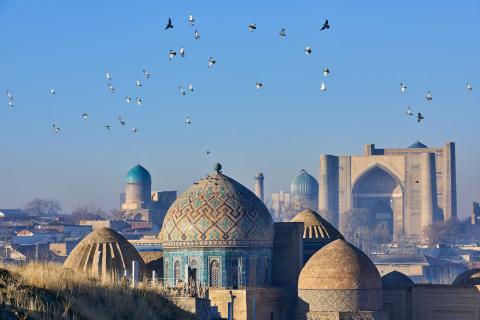Historically, Azerbaijan was known as the world capital of black caviar. More recently, in the years since the dissolution of the Soviet Union, the thorny issue of the disputed region of Nagorno-Karabakh has been the cause of military conflict with neighbouring Armenia – most recently in 2020 when the Turkish-supplied military technology gave battlefield superiority to Azerbaijan.
Of course, Azerbaijan and its interests amount to much more than its features for a trivia quiz or brief forays into international headlines. Since becoming a member of the United Nations in 1992, Azerbaijan has embarked on establishing its new international identity as a progressive Muslim country, forging diplomatic relations with Israel that extended to a strategic partnership. Azerbaijan presently supplies around 40 per cent of Israel’s oil, with bilateral ties soon likely to become closer because of the Russo-Ukraine war that is causing major supply issues globally of vital raw materials such as wheat, oil and urea.
Over the last few years, Azerbaijan has made a successful legacy of chairing the Non-Aligned Movement, which has advocated for the non-alignment in international relations and political/security independence from the United States and Soviet Union during the Cold War. Azerbaijan joined NAM in 2011 when the grouping met in Bali. The 120-member forum held its most recent conference in Belgrade in 2021, the largest in-person gathering of international delegations at that time since the Covid-19 pandemic began. One of NAM’s key objectives has been restructuring the international economic order. Baku’s role within NAM has been so successful that it was decided for Azerbaijan to extend its rotating chairmanship for another year before passing it on to Uganda in the second half of 2022.
As an oil producer, Azerbaijan has also cultivated increased influence. Since entering the Organisation of Petroleum Exporting Countries (OPEC) Plus arrangement, Baku has promoted international energy cooperation and sustainable oil supply on a global scale.
In Australia, both Armenian and Azerbaijani communities have been affected by the conflict over Nagorno-Karabakh, drawing energy from both.
Azerbaijan has also developed economic links with Australia and this year the countries mark 30 years of diplomatic ties. Since Azerbaijan’s principal import sources are Russia, Turkey and China, Australia’s unfulfilled potential in terms of both goods and services is a void to be filled with further innovation and investment.
The large sovereign wealth fund, the State Oil Fund of the Republic of Azerbaijan (Sofaz), acquired Australian government bonds. Foreign ownership of these bonds rose by up to 76 per cent following IMF’s classification of the Australian dollar as a potential safe-haven currency. Azerbaijan’s overall GDP growth in 2021 was 5.6 per cent (higher than Australia’s real GDP growth for last year, which reached 4.8 per cent). Bilateral economic ties are quite modest, with a lot of future potential for further growth.
Key areas of current economic engagement between Australia and Azerbaijan include construction, agriculture, finance and extractive industries. Australia’s major exports to Azerbaijan include electronics and medical apparatus, along with iron and steel articles, while imports from Azerbaijan include crude and refined petroleum and some agricultural products.
Azerbaijan regards itself as a middle power diplomatically. While its immediate neighbourhood (given the proximity and immediacy of the Russo-Ukrainian war) and the Middle East are likely to remain key areas of focus, over the past five years Baku has made diplomatic overtures in the South Pacific, establishing diplomatic relations with Vanuatu in 2017.
While Australia’s embassy in Ankara is responsible for its relations with Azerbaijan, Azerbaijan opened an embassy in Canberra in July 2013. Links were strengthened with the establishment of a parliamentary group in Azerbaijan’s parliament and junior ministers have paid visits each way in the past decade – although a 2017 trip to Baku by Australia’s then international development minister Concetta Fierravanti-Wells became the subject of controversy as some federal parliamentarians disputed Azerbaijan’s sovereignty over Nagorno-Karabakh.
In Australia, both Armenian and Azerbaijani communities have been affected by the conflict over Nagorno-Karabakh. Although this issue is certainly not new, it continues to draw energy from both communities, which are more focused on political matters overseas than on the practical possibility of improving investment links between Australia and countries spanning to Central Asia.
The present anniversary of diplomatic links between Australia and Azerbaijan as well as the shifting geopolitical atmosphere could offer a useful opportunity to advance bilateral relations. There appears untapped potential to grow in the trade and investment space and build upon what might at first appear an unlikely partnership but has the potential to be complementary.

